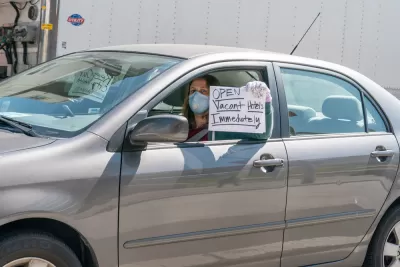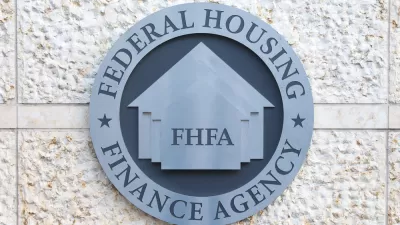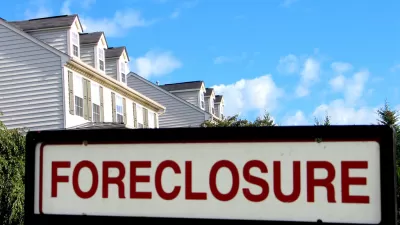A new report from researchers at the Urban Institute makes the case for federal and state relief for renters and property owners hurt by the economic realities of the coronavirus pandemic.

Aaron Shroyer and Kathryn Reynolds lay out the daunting task of dealing with the housing stress of the economic downturn related to the coronavirus. First, the context of the looming payment crisis, as eviction and mortgage payment moratoriums expire in the coming weeks.
State and federal unemployment assistance, along with eviction moratoria, have helped most renters pay rent and remain stably housed during the crisis. But renter households face a severe cliff at the end of July, when supplemental unemployment assistance from the Coronavirus Aid, Relief, and Economic Security (CARES) Act expires.
The alarm bells sounded by Shroyer and Reynolds should have a familiar ring. Planetizen has been documenting the looming crisis in the housing market since the pandemic started to shut down cities and states around the country, in April, May, and again in June.
At this point in the crisis, Shoyer and Reynolds offer a prescription to help the nation's renters and landlords avoid the worst possible outcomes from the crisis.
In a new brief, we estimate that when state and federal unemployment assistance expires, $15.5 billion per month would be needed to alleviate cost burden for renters who were cost-burdened before the pandemic and for renters who lost their jobs as a result of it.
The article details the housing market and unemployment data that inform that prescription, painting a dire portrait of a housing market teetering above a cliff.
FULL STORY: To Stay Stably Housed, Renters Need $16 Billion per Month in Housing Support during the COVID-19 Crisis

Study: Maui’s Plan to Convert Vacation Rentals to Long-Term Housing Could Cause Nearly $1 Billion Economic Loss
The plan would reduce visitor accommodation by 25,% resulting in 1,900 jobs lost.

Alabama: Trump Terminates Settlements for Black Communities Harmed By Raw Sewage
Trump deemed the landmark civil rights agreement “illegal DEI and environmental justice policy.”

Why Should We Subsidize Public Transportation?
Many public transit agencies face financial stress due to rising costs, declining fare revenue, and declining subsidies. Transit advocates must provide a strong business case for increasing public transit funding.

Paris Bike Boom Leads to Steep Drop in Air Pollution
The French city’s air quality has improved dramatically in the past 20 years, coinciding with a growth in cycling.

Why Housing Costs More to Build in California Than in Texas
Hard costs like labor and materials combined with ‘soft’ costs such as permitting make building in the San Francisco Bay Area almost three times as costly as in Texas cities.

San Diego County Sees a Rise in Urban Coyotes
San Diego County experiences a rise in urban coyotes, as sightings become prevalent throughout its urban neighbourhoods and surrounding areas.
Urban Design for Planners 1: Software Tools
This six-course series explores essential urban design concepts using open source software and equips planners with the tools they need to participate fully in the urban design process.
Planning for Universal Design
Learn the tools for implementing Universal Design in planning regulations.
Smith Gee Studio
Alamo Area Metropolitan Planning Organization
City of Santa Clarita
Institute for Housing and Urban Development Studies (IHS)
City of Grandview
Harvard GSD Executive Education
Toledo-Lucas County Plan Commissions
Salt Lake City
NYU Wagner Graduate School of Public Service





























